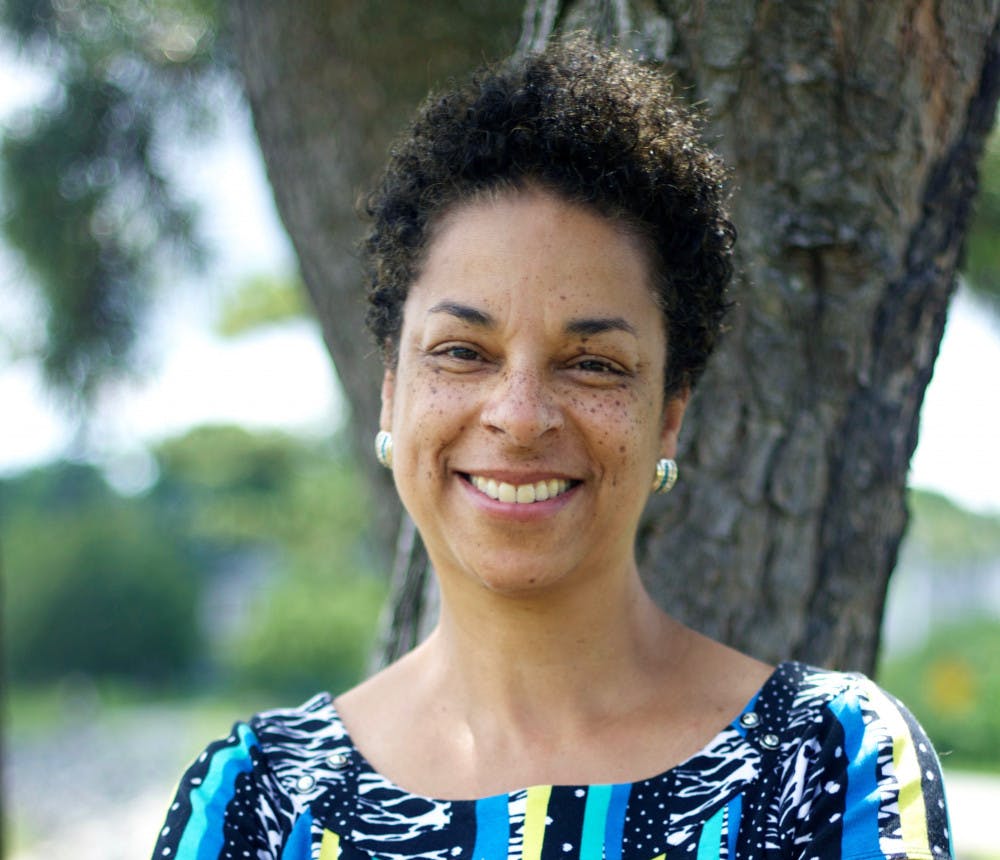Roberta Powell, the Swearer Center community practitioner in residence for spring 2018, gestures with incredulity toward a seemingly endless list of acronyms and numbers she has pulled out of her backpack. These lab results belong to her brother-in-law, who gave her permission to look at the data — and they exemplify the problem she wants to solve in the health care system.
“He has a cancer diagnosis, and he went to (Dana) Farber. … (And) they said, ‘Here are your lab results,’” then they sent him off, Powell said.
Turning the sheet of paper over, Powell pointed to a long list of instructions in small type that followed the lab results. “You tell me what that means,” she added. “It’s just ridiculous.”
Working with a team of University students as the community practitioner in residence, Powell is designing an app to improve “health numeracy” — patients’ understanding of the health data they receive, such as their blood pressure.
The app, currently unnamed, will turn patients’ health data into manageable, transparent visuals that clearly portray the status of their health, Powell said. A short graphic video to explain any unknown concepts will accompany the results, she added.
“My hope and dream and belief is that it is going to help people understand their status better and give them understanding, so they can act on information,” Powell said.
Two students working on the project, Sadie Stern ’21 and Katherine Sang ’21, both agreed that the app fills a gap in the health care system.
“I’ve had family members and very close family friends who have been in and out of hospitals,” Stern said. “And when you’re actually in the hospital, the doctors will tell you a little bit more, but it’s still hard when you get a set of numbers to decipher what that really means.”
Powell’s contributions to the evolution of the health care field follow a life of change-driven dynamism — she’s a self-identified “disturber,” unwilling to stick to the status quo in her own life as well as in society. As a Truman Scholar, her commitment is to the public good.
After a lifetime working in the public transportation and non-profit industries, Powell was diagnosed with breast cancer in 2005 as a single mom with two children. She interpreted the diagnosis and her subsequent recovery as signs to change her life, she said. She went back to school, receiving a degree in nursing in 2009.
“I had to go through a whole process of healing and depression — a spiritual transformation if you will — and all of that led me to a calling, which was becoming a nurse,” Powell said. “I saw it more as an altruistic calling, versus I’m going to get a good job, make good money.”
Through her career in nursing, her cancer diagnosis and her struggle with diabetes, Powell noticed a disconnect between patients and their understanding of the health care they were receiving. In 2016, Powell pivoted yet again: She stopped nursing in 2016, and by June 2017, she had dedicated herself full-time to VeerSafe, an online health education platform that she is continuing to work on as she develops the health numeracy app at the University.
Powell brings experience with health education to her new project, but coding and app development are uncharted terrain, she said. That’s where Brown students come in.
From content and literacy to math and coding, at least 15 students are working with Powell on this project. Sang is on the user interface and design team, hammering out details for the app’s layout.
“There’s a lot of different factors that we have to visualize in different ways, like for cholesterol or heart rate; when you have high or low it can both be negative, so we’re trying to put that on a scale that makes sense,” Sang said.
Powell is the idea woman — the switch-flipper, the one who sees something that needs to change.
Powell sees parallels to the issue she’s looking to solve in health care everywhere: overcomplicated systems making knowledge inaccessible to the public, whether it’s on purpose or by accident. From finance to churches, “keeping knowledge from people gives power to other people,” she said.
Her goal, then, is to provide that knowledge.
“I don’t want people to be victims, because I was a victim,” Powell said. “And so … you empower them. How do you empower them? Through knowledge.”





